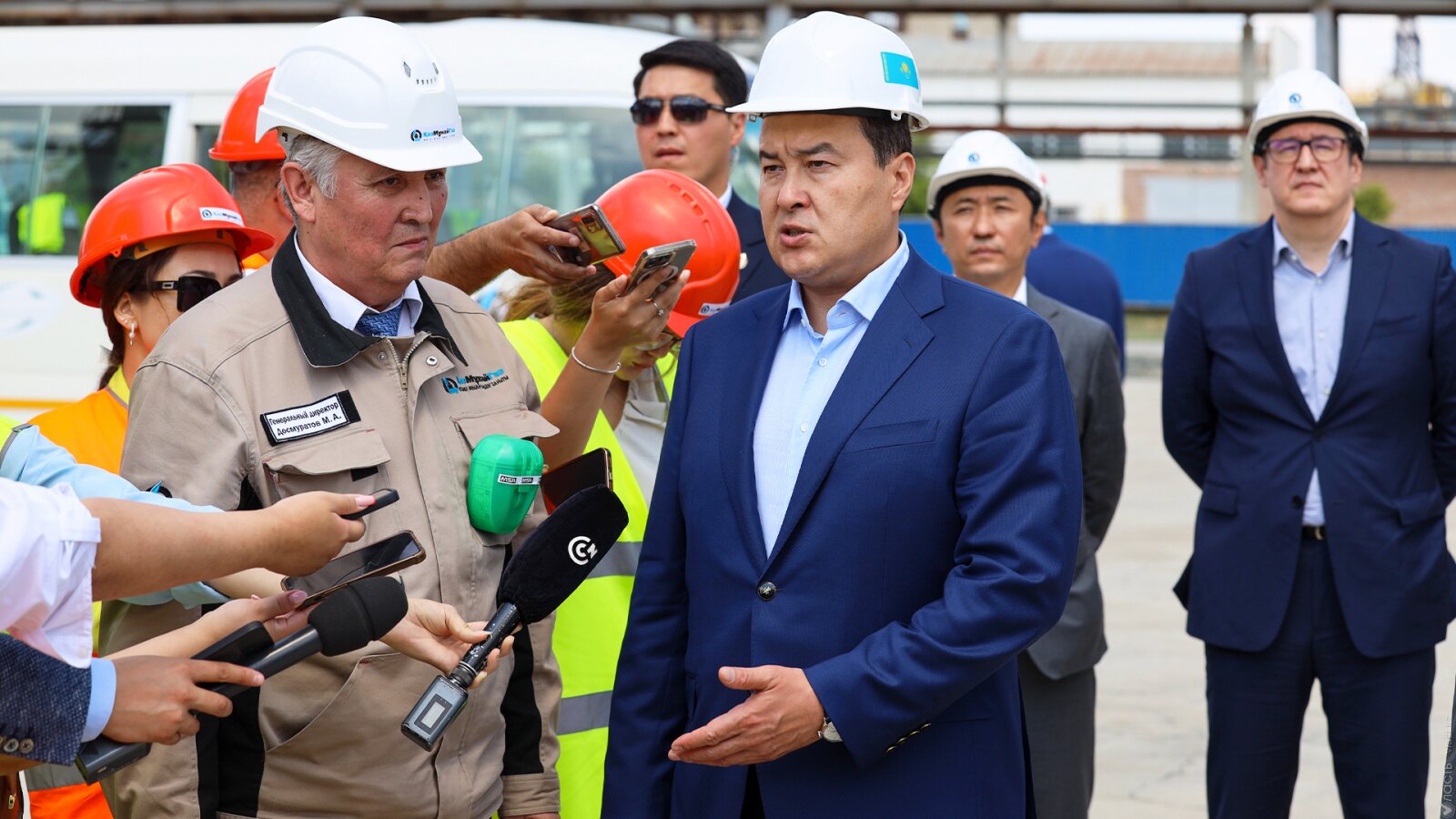Iran became the ninth member of the Shanghai Cooperation Organization (SCO) on July 4. The alliance’s members voted in a virtual summit formally organized in Delhi. The SCO has expanded its ranks in recent years after being for years a strictly regional club of Central Asian states, plus Russia and China.
On the eve of July 6, the official Astana Day, President Kassym-Jomart Tokayev said the move of the capital from the southern city of Almaty in 1998 was “not easy, but the right choice from a geopolitical point of view”. While the “city’s birthday” was first celebrated on June 10, in 2006 the date moved to July 6, coincidentally, the birthday of then-President Nursultan Nazarbayev.
MAEK, a major power plant in the western Mangistau region, halted operations on July 3, due to an unusual fall in frequency, which caused a breakdown. MAEK, owned by the Mangistau regional administration, is responsible for heating and electricity for a wide area of the Mangistau and Atyrau regions, as well as the Atyrau refinery and several other oil processing plants, which were left without electricity. On Thursday, the company said it had completed repairs.
Energy minister Almasadam Satkaliyev said on July 4 that the ministry had known about issues at the MAEK plant for months and that it had already allocated a budget for the necessary repairs. On July 5, during a visit to the plant, prime minister Alikhan Smailov said the government had agreed to earmark 4.9 billion tenge ($11 million) for repairs at the plant, as requested by the regional government. On July 1, Smailov had lamented that repairs at key energy infrastructure were behind schedule.
Russian activist Andrei Pavlov was detained on July 4 in Astana after being placed in a search list by Russian authorities. Pavlov, an opponent of Russia’s war in Ukraine, was released after two days. He is accused of “discrediting the army” in Russia. During his detention, he filed a petition for political asylum. Several Russian activists who escaped to Kazakhstan have faced detention since the start of the war.
A court in Astana overturned in the evening of on June 30 a sentence against Kairat Boranbayev, a prominent businessman, and his associates, opening the door for the reconsideration of a landmark case. In March, Boranbayev was sentenced to eight years in prison for embezzlement, but the court of appeal now says that the evidence brought in support of the prosecution was flawed. While the case is still under consideration, Boranbayev and his associates will remain in detention.
The attorney of former culture minister Arystanbek Mukhamediuly, sentenced to eight years in prison for embezzlement last month, was detained on July 3 in Astana under suspicion of having tried to bribe the court. The Anti-Corruption Agency, which ordered the arrest, said that Mukhamediuly’s wife had given $460,000 to the attorney in an effort to soften the sentence.
The prosecutor in the trial about the seizure of the city’s airport in January 2022 asked a court in Almaty to sentence the defendants to 5 to 11 years in prison. During Qandy Qantar (Kazakh for “Bloody January”, the country-wide protests that turned into urban violence last year), a group of people had seized the Almaty airport. Journalist Aigerim Tleuzhan is among the accused in the case. In January, General Prosecutor Berik Assylov named her as the “main organizer” of the seizure of the airport.
A court in Kyzylorda sentenced on July 4 two people as the “main organizers” of the riots that sprawled across the city during Qandy Qantar last year. Gabit Pirzhanov was sentenced to 16 years in prison, while Farkhat Omarov’s case was closed because of his death during the riots. Kazbek Kudaibergenov, another Kyzylorda resident, was earlier sentenced to 17 years in prison, the longest sentence handed in connection with Qandy Qantar after the 18-year verdict against former National Security Committee head Karim Massimov.
On July 4, a military court in Almaty sentenced to 6.5 years senior sergeant Serikbol Muratkhan for the killing of Yelnar Kanseit during the clashes of Qandy Qantar. Kanseit, the son of the rector of the Kazakh National University, was in his car on 6 January 2022 when he was hit by a military shelling of his vehicle and received fatal wounds.
A court in the Turkistan region ordered to put journalist Amangeldi Batyrbekov under administrative arrest for 20 days on July 4. A member of the Majilis, the lower chamber of parliament, had filed a complaint against Batyrbekov for slander. Batyrbekov has been the target of several attacks in the past few years for his work as a journalist. On July 5, another journalist, Adil Tulepbergenov, from the northern city of Kokshetau, was detained and accused of contempt of court.
Mukhtar Ablyazov, an ex-banker and fugitive opposition figure, was handed a notice to leave the country within 30 days by the French police, the politician said in a livestream. Ablyazov had been arrested and then freed in France, where he applied for political asylum. Last year, however, a French court rejected his application and he is now due to leave the country.
Dauren Abayev, former minister of culture and sports, was appointed to the post of ambassador of Kazakhstan to Russia on July 3. Abayev had also worked as minister of information and as press secretary during Nursultan Nazarbayev’s presidency.
State-owned oil pipeline operator KazTransOil said on July 3 that it increased the shipments of oil through the Baku-Tbilisi-Ceyhan (BTC) pipeline in the second quarter of the year. In the first quarter, it shipped 19,200 tons of crude across the Caspian Sea to Azerbaijan’s capital, where it was loaded onto a pipeline that pumped it to the Turkish port of Ceyhan. According to KazTransOil, in the second quarter the volume exported increased to 347,100 tons. Kazakhstan’s contribution to the BTC amounts to 0.02% of the total capacity of the pipeline.
Note: this article was corrected to show that MAEK is owned by the Mangistau regional administration and not, as previously stated, by state-run Kazatomprom.
Поддержите журналистику, которой доверяют.








